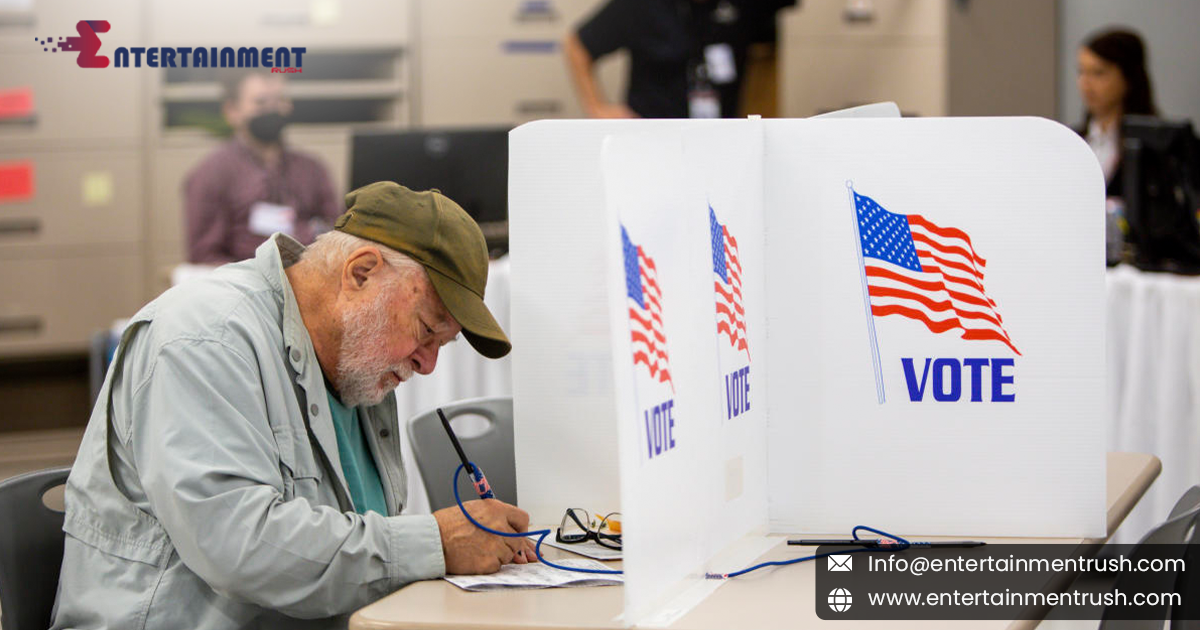The economy has risen to the top of national debate as the election draws near, taking center stage in discussions among voters, politicians, and political pundits. The goals and ideas put out by people running for government have become important discussion topics in an era of fluctuating economic conditions and financial insecurity. The nation’s economic stability and well-being might be significantly impacted by the choices made in this election, making the state of the economy a deciding factor in how voters will vote.
The Economic Landscape
The current economic climate is characterized by a number of urgent challenges that are on the minds of many people. Rising inflation rates have an impact on living expenses and put pressure on household budgets across. These issues have been made worse by labor shortages and supply chain disruptions, which has raised the cost of products and services and raised concerns about the viability of the economy. Furthermore, discussions on government spending, taxes, and interest rates are getting more heated as decision-makers try to strike a balance between limiting inflation and promoting economic development.
Important issues include job development and unemployment. After the slump brought on by the pandemic, the employment market has begun to revive, although at a varying rate in different industries and geographical areas. The labor market is continuously changing due to the advent of automation and technological breakthroughs, and many workers still struggle to find steady, well-paying positions. Voter priorities are being influenced by these factors, especially by those who feel left behind by the state of the economy.
Candidates’ Economic Policies
Candidates from all political stripes are presenting their economic ideas in response to these difficulties, each suggesting a unique strategy for resolving the country’s financial problems. In an effort to boost job creation and lessen inequality, several candidates are calling for greater government involvement in the economy. They have suggested raising the minimum wage, extending social safety nets, and making large investments in renewable energy and infrastructure. They contend that taking such actions is essential to helping suffering families and guiding the economy toward a more egalitarian and sustainable future.
Conversely, other politicians stress the value of fiscal conservatism and support deregulation, lower taxes, and less government expenditure as ways to promote economic growth. These candidates think that reducing government intervention and enhancing private sector power would result in a more robust and dynamic economy that can withstand shocks in the future.
While some support free trade agreements because they think they would expand American companies’ access to new markets and stimulate economic growth, others are calling for greater protectionist measures to preserve home sectors from foreign competition.
Voter Concerns and Decision-Making
Another area where the candidates differ is on trade policy. While some support free trade agreements because they think they would open up new markets for American businesses, others fight for stronger protectionist policies to preserve home sectors from foreign competition. Many people view the economy as a lived reality that influences their day-to-day activities rather than as an abstract idea. Factors such as rising prices, employment stability, and the availability of necessities like housing and healthcare influence people’s perceptions of the economy, which in turn influences how they assess political parties’ agendas and encourage economic growth.
In addition, voters take into account how well each candidate’s economic plans mesh with their own beliefs and long-term goals for the nation. Many people are becoming more concerned about issues like environmental sustainability, corporate control, and economic injustice, especially younger voters who are worried about the world they will inherit. Voters have the chance to select leaders in this election who they think will best handle these problems and lead the country toward a more affluent future.
The Broader Implications
This election’s economic focus goes beyond immediate financial results to include the larger picture of the nation’s future course. The future administration’s choices on economic policy might have a significant impact on everything from foreign relations to social mobility. The election’s result will probably determine the direction of the country’s economy for years to come; therefore, the stakes are very high.
The economy will undoubtedly continue to be the major topic of discussion as the campaign season heats up and voters evaluate the merits of each candidate’s platform. The economy has a significant influence on this election, regardless of the electorate’s decision to support strong government involvement or a more market-driven strategy. This indicates that the economy will play a crucial part in determining the direction of the country.
